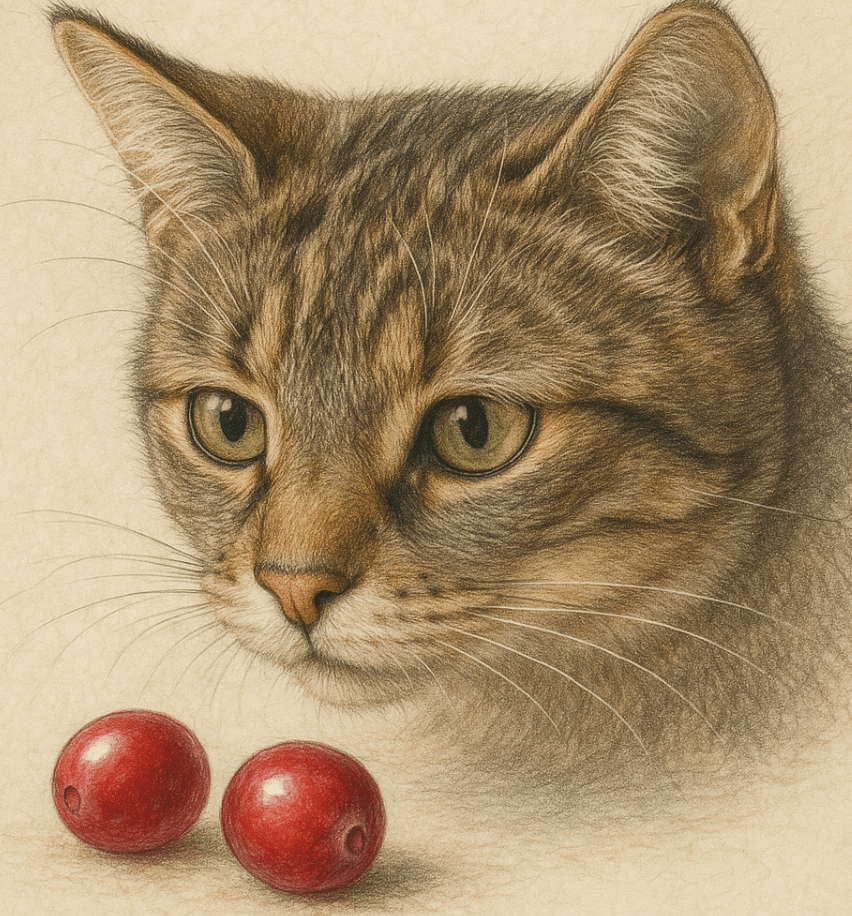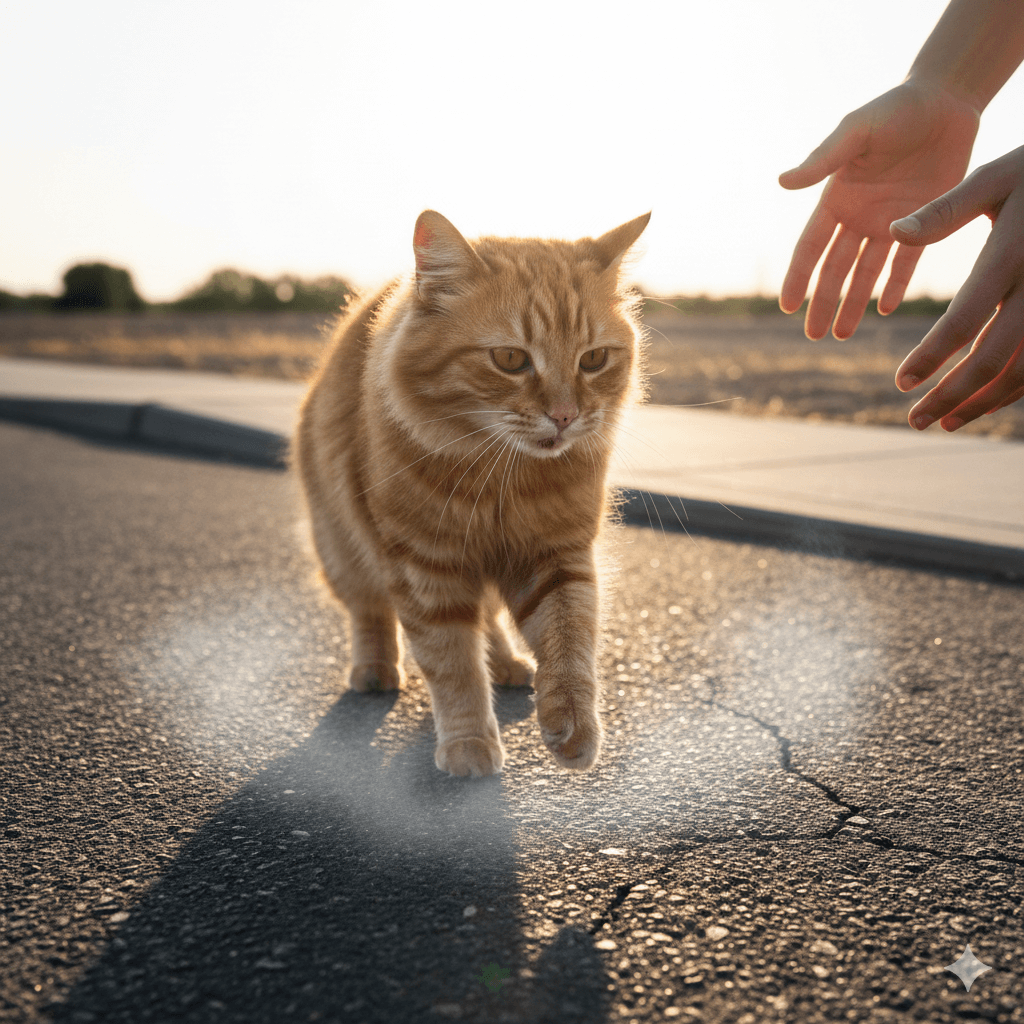Can Cats Eat Cranberries?
Cranberries are often hailed as a superfood for humans, packed with antioxidants and nutrients that support urinary health and overall well-being. But what about our feline friends? Can cats eat cranberries, or should they steer clear of this tart berry? While cranberries aren’t toxic to cats, there are important considerations to keep in mind before sharing them with your furry companion. Understanding the potential benefits, risks, and safe serving practices is essential to ensure your cat’s health and happiness. In this blog post, we’ll explore everything you need to know about feeding cranberries to cats, from their nutritional value to safer alternatives.
Potential Benefits of Cranberries for Cats
In moderation, cranberries may offer some health benefits for cats, particularly when it comes to supporting urinary tract health. However, these benefits are limited and should not replace veterinary care for specific conditions.
Supports Urinary Health:
Cranberries contain compounds that may help prevent harmful bacteria from adhering to the bladder wall, potentially reducing the risk of urinary tract infections (UTIs).Rich in Antioxidants:
The antioxidants in cranberries can help combat oxidative stress and inflammation, promoting overall wellness in cats.Low in Calories:
Cranberries are low in calories, making them a safe occasional treat for cats watching their weight.Hydration Boost:
Adding a small amount of cranberry juice (unsweetened) to water may encourage picky drinkers to stay hydrated.Natural Ingredients:
Unlike many processed pet treats, cranberries are free from artificial additives, offering a natural snack option.
While these benefits exist, it’s important to remember that cranberries should only be given in small amounts and under careful supervision.
Risks and Considerations When Feeding Cranberries to Cats
Despite their potential benefits, cranberries also come with risks that every cat owner should be aware of. Overfeeding or improper preparation can lead to digestive upset or other issues.
High Sugar Content:
Cranberries are naturally sweet, and too much sugar can upset your cat’s stomach or contribute to obesity over time.Digestive Upset:
Cats have sensitive digestive systems, and cranberries may cause vomiting, diarrhea, or gas if consumed in excess.Choking Hazard:
Whole cranberries can pose a choking risk, especially for smaller cats or those prone to gulping food.Allergic Reactions:
Some cats may develop allergic reactions, such as itching or swelling, after consuming cranberries.Unsuitable Forms:
Dried cranberries, cranberry sauce, or products with added sugars and preservatives are unsafe for cats.
Understanding these risks ensures that you can make informed decisions about whether cranberries are appropriate for your cat.
Check this guide 👉Can Cats Eat Tuna? Best 7 Expert Tips!
Check this guide 👉Are Pine Trees Toxic to Cats? Best 7 Expert Tips!
Check this guide 👉Can Cats Eat Okra? Best 7 Expert Tips!

Safe Ways to Serve Cranberries | Unsafe Cranberry Products for Cats |
|---|---|
Fresh, plain cranberries (in small amounts) | Dried cranberries with added sugar |
Unsweetened cranberry juice (diluted) | Cranberry sauce with high sugar content |
Pureed cranberries mixed with wet food | Cranberry-flavored snacks or candies |
Cranberry supplements approved by vets | Processed cranberry drinks with additives |
Homemade cranberry treats (no sugar) | Store-bought trail mixes with cranberries |
How to Safely Introduce Cranberries to Your Cat
If you decide to share cranberries with your cat, it’s crucial to do so safely and responsibly. Follow these guidelines to minimize risks and ensure a positive experience.
Start with Small Portions:
Offer just one or two fresh cranberries at a time to see how your cat reacts before giving more.Choose Plain, Unsweetened Varieties:
Avoid cranberries with added sugars, artificial flavors, or preservatives, as these can harm your cat’s health.Monitor for Reactions:
Watch for signs of digestive upset or allergic reactions after introducing cranberries. Discontinue if any issues arise.Mix with Familiar Foods:
Blend cranberries with your cat’s regular wet food or kibble to make them more appealing and easier to digest.Consult Your Veterinarian:
Always seek professional advice before adding new foods to your cat’s diet, especially if they have underlying health conditions.
By following these steps, you can safely determine whether cranberries are a suitable treat for your cat.
Signs Your Cat May Not Tolerate Cranberries
Even if cranberries are generally safe, some cats may not tolerate them well. Recognizing these warning signs allows you to act quickly and protect your cat’s health.
Vomiting or Diarrhea:
These symptoms indicate digestive distress and suggest that cranberries may not agree with your cat’s system.Decreased Appetite:
If your cat refuses to eat after trying cranberries, it could signal discomfort or an adverse reaction.Excessive Drooling:
Drooling may occur if cranberries irritate your cat’s mouth or throat, especially if served in large pieces.Lethargy or Weakness:
A sudden lack of energy could indicate an allergic reaction or other serious issue requiring immediate attention.Difficulty Urinating:
While cranberries may support urinary health, excessive consumption could irritate the bladder, leading to pain or blockages.
If you notice any of these signs, stop feeding cranberries immediately and consult your veterinarian.
Common Mistakes to Avoid When Feeding Cranberries to Cats
Feeding cranberries to your cat requires caution to avoid mistakes that could harm their health. Here are some pitfalls to watch out for.
Offering Too Many Cranberries:
Overfeeding can overwhelm your cat’s digestive system and lead to discomfort or illness.Using Sweetened Products:
Cranberries with added sugar or artificial sweeteners are unsafe and can cause long-term health issues.Ignoring Allergies or Sensitivities:
Failing to monitor for adverse reactions can result in missed opportunities to address potential problems early.Serving Whole Berries Without Preparation:
Whole cranberries can be difficult for cats to chew and may pose a choking hazard.Substituting Cranberries for Veterinary Care:
Cranberries cannot replace professional treatment for urinary tract infections or other health concerns.
Avoiding these mistakes ensures a safer and healthier experience for your cat.
Alternatives to Cranberries for Cats
If you’re hesitant about feeding cranberries to your cat, there are plenty of alternative treats that are safe and nutritious.
Cooked Chicken or Turkey:
Plain, unseasoned poultry provides protein-rich nutrition and satisfies your cat’s carnivorous cravings.Pumpkin Puree:
High in fiber, pumpkin puree supports digestive health and can help regulate bowel movements.Blueberries:
Low in sugar and rich in antioxidants, blueberries make a safe and tasty occasional treat.Watermelon (Seedless):
Seedless watermelon offers hydration and a refreshing snack for cats who enjoy fruits.Cat-Specific Treats:
Commercially available cat treats are formulated to meet feline dietary needs without unnecessary additives.
These alternatives allow you to cater to your cat’s taste buds while keeping them safe and healthy.
Understanding Your Cat’s Dietary Needs
Cats are obligate carnivores, meaning their bodies require animal-based proteins to thrive. Understanding their dietary requirements helps explain why certain human foods, like cranberries, should be approached with caution.
High Protein Requirement:
Cats need diets rich in animal protein to support muscle development, energy production, and overall vitality.Limited Carbohydrate Tolerance:
Unlike humans, cats have difficulty processing carbohydrates, making sugary foods like cranberries less ideal.Essential Nutrients:
Cats require specific nutrients, such as taurine and arachidonic acid, found primarily in meat-based diets.Hydration Importance:
Cats are prone to dehydration, so foods with high moisture content, like wet food or watermelon, can aid hydration.Individual Preferences:
Every cat has unique tastes and tolerances; what works for one may not suit another.
By recognizing these dietary principles, you can better tailor your cat’s meals to their needs while avoiding potential pitfalls.
Frequently Asked Questions About Feeding Cranberries to Cats
Are cranberries toxic to cats?
No, cranberries are not toxic, but they should be fed sparingly due to their sugar content and potential for digestive upset.
Can cranberries cure my cat’s UTI?
While cranberries may support urinary health, they are not a substitute for veterinary treatment of UTIs or other medical conditions.
How much cranberry juice can I give my cat?
Dilute unsweetened cranberry juice with water and offer no more than a teaspoon at a time.
What forms of cranberries are unsafe for cats?
Avoid dried cranberries, cranberry sauce, and any products with added sugars or artificial ingredients.
Should kittens eat cranberries?
Kittens have delicate digestive systems, so it’s best to avoid giving them cranberries altogether.
Prioritizing Your Cat’s Health When It Comes to Cranberries
While cranberries can offer some benefits for cats, they are not a necessary part of their diet and should be treated as an occasional indulgence rather than a staple. By understanding the potential risks and safe serving practices, you can ensure that your cat enjoys this tart treat without compromising their health. Always prioritize your cat’s individual needs and consult your veterinarian before introducing new foods. With careful consideration, you can provide your feline friend with a balanced and enjoyable diet while keeping their well-being front and center.
Newfoundland Dog Personality: Best 7 Expert Tips! – Discover the gentle, loyal, and protective nature of this giant breed perfect for families.
Can Hot Pavement Burn Your Cats Paws? Best 7 Expert Tips! – Learn how to protect your cat’s paws from hot surfaces and prevent painful burns this summer.
Can Hot Pavement Burn Your Dogs Paws? Best 7 Expert Tips! – Learn how to protect your dog’s paws from hot surfaces and ensure safe summer walks.
Irish Wolfhound Size: Best 7 Expert Tips! – Discover the ideal height, weight, and care tips for this majestic giant breed. Learn how to manage their impressive stature responsibly.




